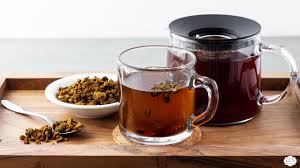Mushroom tea has gained popularity in recent years for its potential health benefits, including immune support and antioxidant properties. However, when it comes to certain demographics, such as children and pregnant women, concerns about safety and appropriateness arise. In this article, we will explore the nutritional benefits of mushrooms, the specifics of mushroom tea, and address whether it is suitable for consumption by children and pregnant women.
2. Nutritional Benefits of Mushrooms
Mushrooms are a rich source of various nutrients, including vitamins (such as B vitamins and vitamin D), minerals (like selenium and potassium), and antioxidants. They also contain protein and dietary fiber, making them a valuable addition to a balanced diet. Understanding the nutritional profile of mushrooms is crucial to assessing their potential benefits for different age groups and physiological conditions.
3. Mushroom Tea: An Overview
Mushroom tea is typically made by steeping dried mushrooms in hot water, allowing their bioactive compounds to infuse into the liquid. The most commonly used mushrooms for tea include reishi, chaga, and lion’s mane, each with purported health benefits ranging from immune system support to cognitive function enhancement.
4. Safety Concerns for Children
4.1 Allergies and Sensitivities
Children can be more susceptible to allergies and sensitivities than adults. While mushrooms are not a common allergen, it is essential to introduce new foods and beverages cautiously. Before incorporating mushroom tea into a child’s diet, parents should observe for any adverse reactions, such as rashes, digestive issues, or respiratory symptoms.
4.2 Caffeine Content
Some mushroom teas may contain added ingredients like green tea, which contributes caffeine to the beverage. While caffeine sensitivity varies among individuals, excessive caffeine intake can have adverse effects on children, including sleep disturbances and increased heart rate. It is crucial to choose caffeine-free mushroom tea options for children or consult with a healthcare professional regarding suitable alternatives.
5. Safety Concerns for Pregnant Women
5.1 Nutritional Needs during Pregnancy
Pregnant women have unique nutritional needs to support fetal development and maintain their own health. Mushrooms can be a valuable addition to their diet, providing essential nutrients. However, the concentrated form of mushroom tea may not be the most suitable way to meet these needs, considering potential risks.
5.2 Potential Risks and Concerns
The safety of consuming mushroom tea during pregnancy is not well-researched. Some mushrooms may contain compounds that could be harmful in high concentrations. Additionally, variations in individual responses to different mushroom species make it challenging to establish a one-size-fits-all recommendation. Pregnant women should exercise caution and seek guidance from healthcare professionals before incorporating mushroom tea into their routine.
6. Health Benefits of Mushroom Tea
While safety concerns are crucial, it’s also essential to acknowledge the potential health benefits of mushroom tea. The bioactive compounds found in certain mushrooms have been studied for their anti-inflammatory, antioxidant, and immune-modulating properties. These benefits may be particularly relevant for adults, but more research is needed to determine the efficacy and safety for specific populations.
7. Alternative Mushroom Consumption for Children and Pregnant Women
For individuals who want to introduce mushrooms into the diets of children or pregnant women, alternative forms of consumption can be considered. Incorporating mushrooms into meals, such as soups, stews, or stir-fries, allows for better control over portions and reduces the concentration of certain compounds that might be of concern.
8. Consulting with Healthcare Professionals
Before making any significant dietary changes, especially for vulnerable populations like children and pregnant women, consulting with healthcare professionals is crucial. A registered dietitian or healthcare provider can offer personalized advice based on an individual’s health status, dietary preferences, and specific needs.
Lone Star Mushrooms is a captivating keyword that sparks curiosity about a unique aspect of the fungal kingdom. In this article, we’ll delve into the realm of Lone Star Mushrooms, uncovering what makes them special, their potential varieties, and their significance in various contexts.
9. Conclusion
In conclusion, the question of whether children or pregnant women can consume mushroom tea is nuanced. While mushrooms offer valuable nutrients, the concentrated form of mushroom tea raises safety concerns, particularly regarding allergies, caffeine content, and potential risks during pregnancy. As with any dietary consideration, it is crucial for parents and pregnant women to consult with healthcare professionals to make informed decisions that prioritize health and well-being. As research on mushroom tea continues, a better understanding of its safety and benefits for different populations will likely emerge, guiding more precise recommendations in the future.



